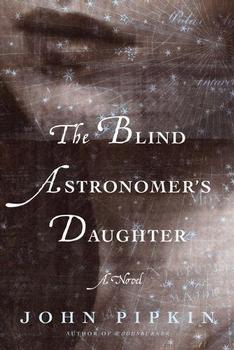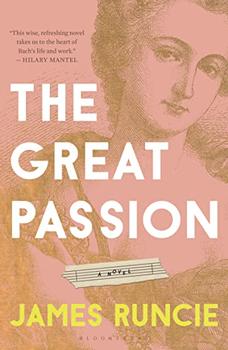Summary | Excerpt | Reading Guide | Reviews | Beyond the book | Read-Alikes | Genres & Themes | Author Bio

A novel of the obsessions of the age: scientific inquiry, geographic discovery, political reformation, but above all, astronomy, the mapping of the solar system and beyond. It is a novel of the quest for knowledge and for human connection - rich, far-reaching, and unforgettable.
In late-eighteenth-century Ireland, accidental stargazer Caroline Ainsworth learns that her life is not what it seems when her father, Arthur, throws himself from his rooftop observatory. Caroline had often assisted her father with his observations, in pursuit of an unknown planet; when astronomer William Herschel discovered Uranus, Caroline could only watch helplessly as unremitting jealousy drove Arthur to madness. Now, gone blind from staring at the sun, he has chosen death over a darkened life.
Grief-stricken, Caroline abandons the vain search, leaves Ireland for London, and tries to forget her love for Finnegan O'Siodha, the tinkering blacksmith who was helping her father build a telescope larger than his rival's. But her father has left her more than the wreck of that unfinished instrument: his cryptic atlas holds the secret to finding a new world at the edge of the sky. As Caroline reluctantly resumes her father's work and confronts her own longings, Ireland is swept into rebellion, and Caroline and Finnegan are plunged into its violence.
The plot takes a while to get up and running, and even when it does, proceeds slowly. To be fair, it takes time to construct a story that is as big as the heavens. The scope of The Blind Astronomer's Daughter may be a bit too big, its cast a bit too populous, but the final chapters redeem these minor flaws...continued
Full Review
(674 words)
This review is available to non-members for a limited time. For full access,
become a member today.
(Reviewed by Lisa Butts).
John Pipkin brings the astronomer siblings, William and Caroline Herschel, vividly to life in The Blind Astronomer's Daughter. While the novel shines light on Caroline in particular, William, with his impressive discoveries and status as England's astronomy golden boy, provides motivation for the fictional Arthur Ainsworth's quest for renown.
William and Caroline Herschel were born in Hanover in 1738 and 1750, respectively. Today, Hanover is part of Germany; at the time it was a state within the Holy Roman Empire and the birthplace of both George I and II. George III was born in England and was simultaneously King of The United Kingdom and Hanover - although he apparently never visited the latter. Upon the invasion of the French in 1757,...
This "beyond the book" feature is available to non-members for a limited time. Join today for full access.

If you liked The Blind Astronomer's Daughter, try these:

by Sarah Perry
Published 2025
A dazzling new work of literary fiction from the author of The Essex Serpent, a story of love and astronomy told over the course of twenty years through the lives of two improbable best friends.

by James Runcie
Published 2023
From acclaimed bestselling author James Runcie, a meditation on grief and music, told through the story of Bach's writing of the St. Matthew Passion.